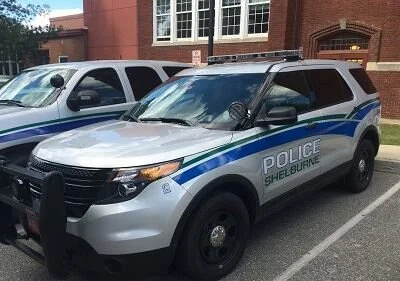South Burlington police department supports many federal police reform ideas
South Burlington police chief Shawn Burke said his department supports many of the measures in a new federal police reform bill working its way through Congress, though the proposed elimination of “qualified immunity” is misunderstood, he said.
The proposal m would ban the use of chokeholds, eliminate qualified immunity for police officers, and ban no-knock warrants in drug cases, such as the one where Breonna Taylor, a Black, 26-year-old medical worker was shot and killed by Louisville police in March 2020. It would ban racial, religious and discriminatory profiling and establish a National Police Misconduct Registry among many other changes.
Qualified immunity is a type of legal immunity, which protects a public official from lawsuits alleging that the official violated a person's rights, only allowing suits where officials violated a “clearly established” statutory or constitutional right, according to Cornell University’s Legal Information Institute.
In a press release on March 4, Welch said, “This critical police reform bill will help set us on a path to a more equal and just society. We have seen too many brutal videos of Black Americans being killed by police. These long overdue reforms will promote accountability and begin to change a culture of impunity that is pervasive in too many police departments.”
In a virtual roundtable, Rep. Karen Bass (D-CA) , who introduced the bill, discussed the parts of the George Floyd Justice in Policing Act with Rep. Peter Welch and Vermont racial justice advocates.
She began the discussion by reflecting on the death of George Floyd and other Black Americans at the hands of police, outlining how each case influenced a facet of the proposed police reform.
“I don’t care if the person was suspect or a criminal. I don’t know when we would concede the fact that if you are suspected of a crime you are arrested, you are put on trial, and you are innocent until proven guilty,” said Bass.
“The rest of the country looks at Vermont as a very progressive state,” said Bass.
South Burlington Police Chief Shawn Burke is for the most part in support of the bill, but believes that qualified immunity is a more complicated and misunderstood issue, he said.
“There's some belief that police misconduct somehow hides under this umbrella. That's not true. There are plenty of civil suits that are filed against police departments in the state of Vermont that proceed through federal court where the conduct is not quickly dismissed under qualified immunity,” said Burke.
Not as many cases are dismissed under qualified immunity than one might think, Burke said, and to take it away would make the system more vulnerable to being taken advantage of.
“If legislation were to remove qualified immunity from the police profession, what you would see is just an onslaught of litigation that municipalities and our insurance carriers would somehow have to try to fend off. And I just don't think that is a wise place to go, whatsoever,” said Burke.
As for the rest of the bill, Burke feels that the ban on no-knock warrants will have little effect on how the SBPD operates. He said no-knock warrants are rarely requested, especially in South Burlington, and the department has been approaching situations that might need one differently for a few years.
A state law passed last year, S.219, made it a crime for officers to use certain restraint techniques such as chokeholds. There has been discussion within the House Judiciary Committee about whether or not an officer should be allowed to use such restraint in a life threatening situation. A new state bill, H.145, introduced this year, would allow an officer to use some restraints under life threatening situations, and release the restraint as soon as the individual no longer poses a threat.
“It's imperative that we don't take restraints completely off the table, meaning they should be allowed when lethal force is justified to do so. Because if that option isn't there, what we're asking cops to do is then to move to something else that may or may not be available, and that something else is going to be use of a firearm,” said Burke.
As far as racial and discriminatory profiling, Burke pointed to Vermont’s Fair and Impartial Policing policy. Data on traffic stops and other policing is collected to measure the level of success each department has with this commitment.
Burke views the bill as a good call to action for police departments across the country that still rely on outdated policing strategies such as no-knock warrants.
The bill is now in the U.S. Senate. With Senate filibuster requirements in place, should the bill get a vote in the upper chamber, at least 10 Republican senators would have to join the 50-member Democratic caucus in approving the bill.







